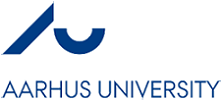Physics

Winter intake start date
2026-02-01
Winter intake deadline
2024-10-10
Introduction
You adjust the laboratory lasers before going to your next lecture on cold atoms. You feed your computer the latest measurements from the scanning tunnelling microscope, and see if the placement of the extra atoms on the surface matches your model calculation. You do some work on your model for a quantum computer, before going to the next lecture in quantum optics. Or perhaps right now you are at CERN for a week, running experiments with anti-protons to test new possibilities for radiation therapy, or predicting the fate of ultra-relativistic lead ions in the Large Hadron Collider.
Focus on research
Teaching in the MSc in Physics programme is greatly influenced, both in the courses and in the thesis work, by the fact that the lecturers are active researchers. In this context students benefit from the down-to-earth, informal relationship between faculty and students. When students write their thesis, they are connected with a group of researchers and participate in one or more of the group’s research projects. Students on the programme have a wide range of options for specialisation, both at the Department of Physics and Astronomy and via the department’s close collaboration with the Institute for Storage Ring Facilities (ISA) and the Interdisciplinary Nanoscience Center (iNANO). The department also has research groups working at several institutions outside Denmark, including a number of the major European laboratories.
Student profile
The MSc in Physics programme is open to students with a BSc degree in physics, or another BSc degree in science with substantial physics and mathematics content. The programme is both practical and research oriented and reflects the interests of private-sector companies, research
institutions and the public sector. It is also flexible and can accommodate the interests and strengths of the individual student. Students can specialise within (for example) atomic and molecular physics, solid-state physics, subatomic physics or astrophysics. The programme also qualifies students for a career in research: students may apply for admission to the university’s PhD programme either during the MSc degree programme or on completion of the thesis.
Career profile
For many years, graduates from the Department of Physics and Astronomy have generally been able to find jobs immediately. There are numerous career options. A high proportion of recent graduates are now working in the private sector: graduates find jobs in leading consultancy firms and in a wide range of major companies. Increasing numbers of graduates find employment at hospitals; others pursue careers in research and academia.
Na studia magisterskie mogą kandydować wszyscy, którzy ukończyli studia licencjackie lub inżynierskie (studia I stopnia), studia magisterskie lub studiują na ostatnim roku studiów I-stopnia. Studia, które planujesz powinny mieć zbliżony profil do tych obecnych lub ukończonych, ponieważ w procesie rekrutacji kluczowa jest ich zgodność programowa.
Wykaz punktów ECTS – osoby, które są jeszcze w trakcie studiów, muszą załączyć wypis punktów ECTS, w którym będzie wykazane, jakie przedmioty były realizowane na studiach oraz ile punktów za nie otrzymano.
Dyplom ukończenia studiów licencjackich lub inżynierskich – jeśli jesteś absolwentem wyższej uczelni, nie potrzebujesz wypisu, wystarczy załączyć dyplom ukończenia studiów wraz z suplementem (w języku angielskim lub oryginał z tłumaczeniem)
Course description - należy przygotować dokument, zbierający cały sylabus ze studiów licencjackich. Takie sylabusy najczęściej są do pobrania na stronie uniwersytetu. Należy je przetłumaczyć na język angielski (można samodzielnie) i złączyć w jeden dokument. Warto też zapytać w dziekanacie uczelni, czy nie dysponują wersją angielską.
Oficjalna skala oceniania Twojej uczelni - możesz dostać taki dokument w dziekanacie Twojej uczelni lub skonstruować samodzielnie. W obu przypadkach dokument powinien zawierać pieczątkę dziekanatu.
Spełnienie wymagań w zakresie języka angielskiego można udokumentować w jeden z następujących sposobów:
IELTS – 6.5
TOEFL – 83 (Aarhus University TOEFL kod - 8935)
Uwaga: wymagania językowe mogą ulec zmianie. Przed wysłaniem aplikacji upewnij się jakie są wymagania językowe na konkretny kierunek bezpośrednio na stronie uczelni.
W przypadku zdawania certyfikatu IELTs upewnij się, czy uczelnia oprócz wymagań oceny końcowej nie ma również wymagań odnośnie ocen cząstkowych.
You can be admitted to the master's programme if the university assesses that your education has a level, scope, and content that corresponds to the academic requirements specified below.
| Subject area | Number of ECTS |
Course elements within physics and astronomy The following subject areas should be covered:
| 60 |
| Course elements within mathematics and statistics | 30 |
| Total | 90 |
